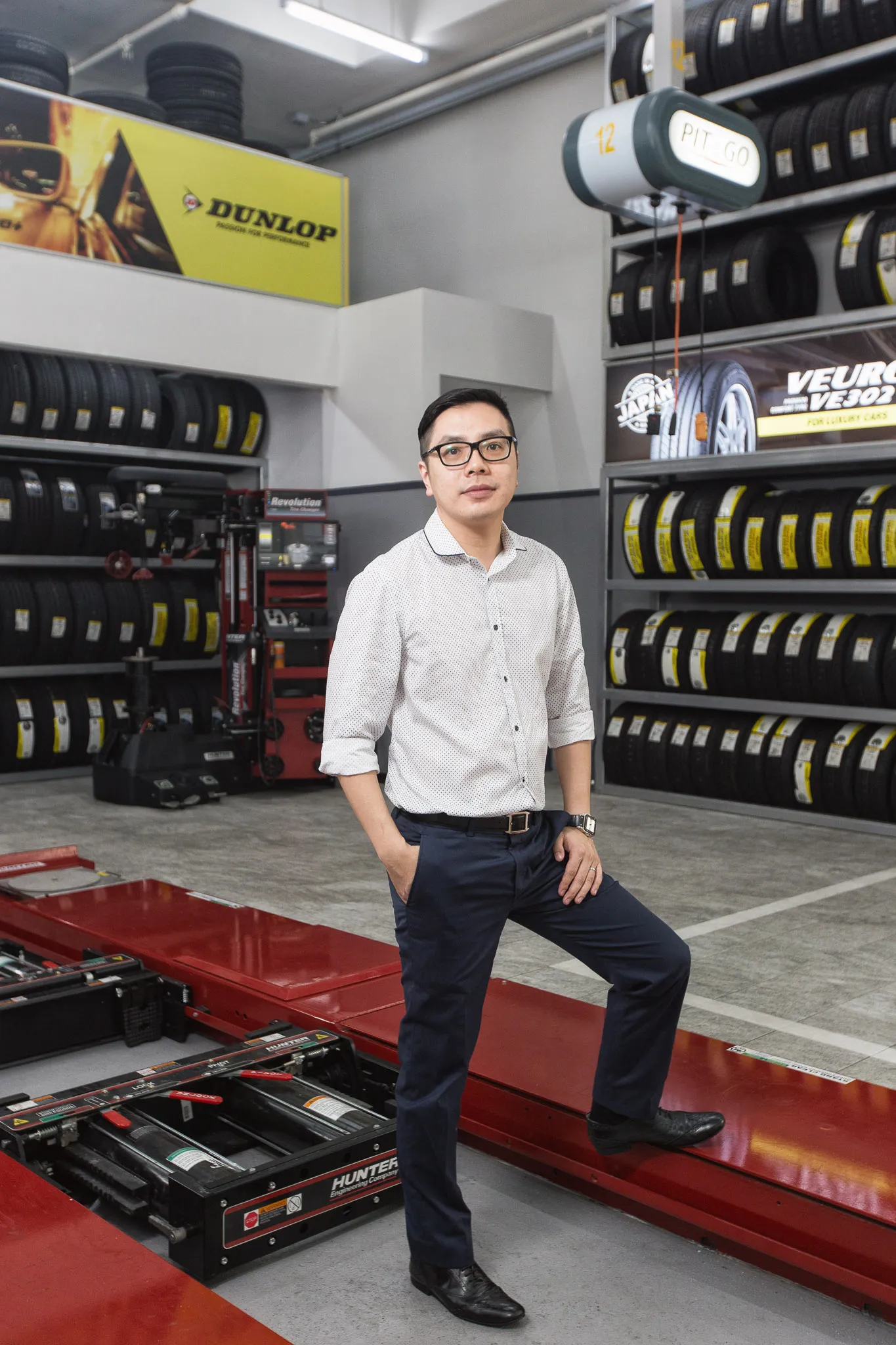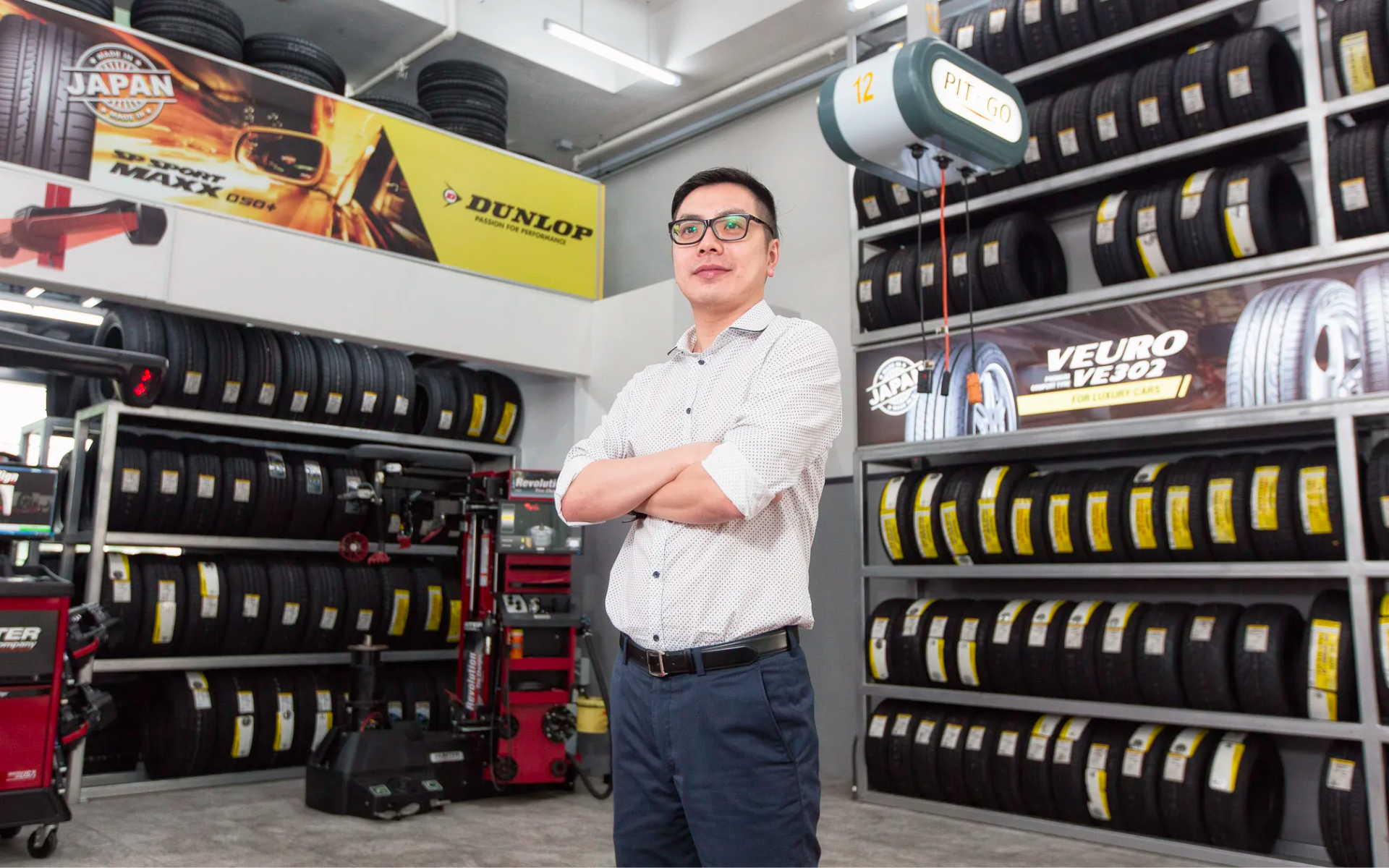Soon after taking over Ricardo Group, his father’s automotive servicing and repair business, in 2011, Jeremy Soh was met with his first major challenge of a business slowdown.
With its core revenue stream under threat, Jeremy had to think on his feet and unravel new business opportunities, or risk the inevitable demise of this 42 year-old family-owned business. He then decided to diversify the company’s portfolio by creating a car financing arm that has since become Ricardo’s most profitable amongst its auto sales, insurance, and servicing businesses.
“I tried to create a whole new ecosystem around our core business (of servicing cars), rather than to rely solely on it,” he explains.
To shift into new gears of growth, the 35-year-old placed equal emphasis on digitalising and modernising the company’s archaic work processes. In addition, the diversified business portfolio of the revamped Ricardo Group is linked by a common IT system which allows its employees to cross-sell relevant services to customers.
As Jeremy shares, “having one ecosystem, data is shared among various departments,” and with this, employees are able to promote relevant services to customers at various points in the business chain.
To improve customer loyalty, Jeremy also installed a software that identifies cars due for servicing or insurance renewal and reminds customers through SMS. Similarly, he implemented an online booking system to give customers the convenience of locking in appointments. The same system also sends SMS reminders for car servicing appointments to reduce no shows and eliminate paper records.

The story of Ricardo’s digitalisation journey is far from over — Jeremy is now working with a developer to build a portal that tracks the status of his car financing business to allow his staff to follow up on one another’s work easily. The new system also comes with a mobile friendly dashboard which allows car dealers to submit their clients’ loan applications conveniently. As the portal is able to reject incomplete forms, it improves employees’ productivity and efficiency by reducing administrative duties.
Embracing technology is key to Ricardo, says Jeremy, because they also reduce the company’s dependency on manpower even while the business expands. “I realised the hardest part about doing business is actually finding the right people,” he says, and technology alleviates that by automating many tasks.
That said, human talent remains an important component for the survival and expansion of his company. In fact, going high tech is part of Jeremy’s plan to attract new talents. “Automotive is not as sexy as banking, and those who do join our industry prefer to work for the big distributors in their fancy workshops,” he explains. To shed the company’s mom-and-pop cocoon and turn it into an attractive workplace for new generation employees, he has spruced up Ricardo’s new workshop at Sin Ming AutoCity and furnished it with labour-saving equipment that make his mechanics’ job easier.
“My dad built the business singlehandedly over 40 years,” Jeremy says. “It is my duty that I at least try to bring it to the next level.”




